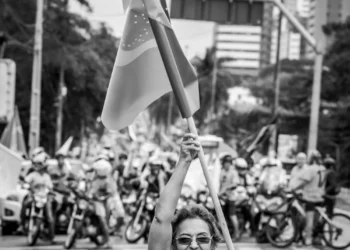Editor’s Note: This is an opinion essay.
The 60th anniversary of the onset of the military dictatorship in Brazil is a moment of profound reflection and a crucial reminder of the fragility of democracy. On March 31, 1964, Brazil embarked on a dark chapter in its history, entering a period of authoritarian rule that would last for over two decades. This time was marked by censorship, persecution, and the suppression of political freedoms, casting a long shadow over the nation’s journey towards democratic governance. As we remember this significant historical milestone, it is imperative to underscore the importance of memory, democratic values, and the continuous effort needed to fortify political institutions against the encroachment of authoritarian values and practices.
The Importance of Memory
The memory of the military dictatorship in Brazil serves as a solemn reminder of the cost of lost freedoms and the profound impact of authoritarian rule on individuals and society as a whole. Remembering this period is not merely an act of historical recollection but a vigilant safeguard against the recurrence of such dark times. It compels us to confront uncomfortable truths about human rights abuses, political repression, and the silencing of dissenting voices. The act of remembering fosters a collective consciousness that values freedom, champions human rights, and promotes empathy for those who suffered under the dictatorship.
In educational contexts, the narrative of this era should be preserved and taught with accuracy and sensitivity, ensuring future generations understand the high stakes of political engagement and the precious nature of democratic freedoms. Memory acts as a bridge linking past lessons with present and future actions, reminding us that democracy is a continual work in progress, requiring active participation, vigilance, and commitment.

The Unassailable Value of Democratic Principles
Democracy, with all its imperfections, offers a framework within which freedom, equality, and justice can flourish. The anniversary of the military dictatorship’s inception is a poignant reminder of the alternatives—a reminder that the rights to free speech, assembly, and political participation are not guaranteed but must be actively defended and nurtured. Democratic values such as these are the bedrock upon which societies can build inclusive, prosperous, and harmonious futures. They enable the resolution of conflicts through dialogue and consensus rather than through force and intimidation.
Moreover, the preservation of democratic institutions and the adherence to the rule of law are essential for the continuation of a society where individuals can aspire to better lives. These institutions—be they judicial, legislative, or educational—serve as the pillars that uphold the principles of democracy, ensuring accountability, transparency, and the equitable application of justice. Strengthening these institutions is an ongoing task, necessitating constant vigilance and reform to address emergent challenges and societal changes.
The Role of Gatekeeping and the Erosion of Political Norms
The gatekeeping in politics, which involves political parties and leaders acting to prevent individuals with authoritarian tendencies from gaining power. The failure of gatekeeping mechanisms in Brazil, where military and civilian elites colluded to overthrow President João Goulart, illustrates how the lack of strong democratic norms and institutions can pave the way for authoritarianism. This emphasizes the importance of political parties and leaders in maintaining democratic integrity by rejecting those who threaten democratic norms.
Also, the gradual erosion of democratic norms is a pathway to authoritarianism. In the Brazilian context, the military dictatorship systematically dismantled democratic institutions and norms, restricting political freedoms, and persecuting opponents. This historical example serves as a stark reminder of the need to vigilantly protect democratic norms, such as mutual toleration and restraint, to prevent the slide into authoritarian governance.










